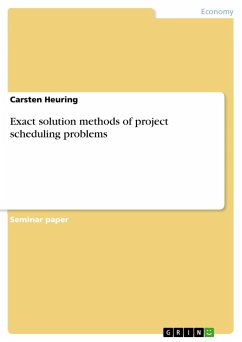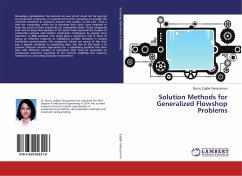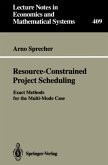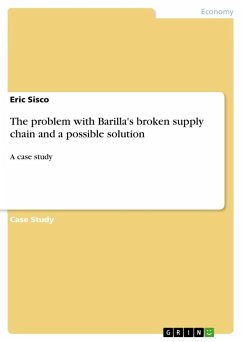Seminar paper from the year 2002 in the subject Business economics - Operations Research, grade: 1,9, http://www.uni-jena.de/ (Lehrstuhl für ABWL, insb. Betriebswirtschaftliche Entscheidungsanalyse), course: Quantitative Methoden der Projektplanung, language: English, abstract: The use of project management is continuously growing in industrial and public organizations providing an efficient instrument for mastering the challenges caused by steadily shortening product life cycles, decreasing profit margins, and global markets. One of the main tasks in project management is the scheduling of the project, that is, the temporal arrangement of activities. Resources are required to perform activities and are available with limited capacities. Therefore, within the project management the activities are to be scheduled subject to precendence and resource constraints. In practice, different types of resources may occur. Renewable resources (e.g. machines) are available at each point in time. Nonrenewable resources (e.g. money) are depleted by use. These resources only affect the scheduling of activities if activities can be carried out in alternative modes which differ, for example, in duration and amount of resources needed. To describe these scheduling problems we use mathematical models. The techniques to solve resource constrained project scheduling problems are descriebed with branch and bound methods.








